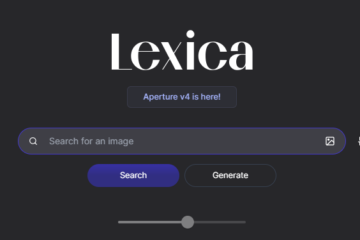Mastering ElevenLabs: Your Guide to AI Voice Cloning and Speech Synthesis
Have you ever wanted to narrate your audiobook with your own voice, even if you’re not a professional narrator? Or maybe you dream of creating custom voiceovers for your YouTube videos. With the power of ElevenLabs, these possibilities and more are at your fingertips!
This guide will be your one-stop shop for mastering ElevenLabs. We’ll delve into everything from the platform’s core features like text-to-speech and voice cloning to advanced techniques for achieving the perfect synthetic voice. Whether you’re a complete beginner or a curious tinkerer, this guide will equip you with the knowledge to unlock the full potential of ElevenLabs and bring your creative voice projects to life.
Unveiling the Magic: Understanding AI Voice Cloning and Text-to-Speech
The world of voice is undergoing a revolution, thanks to advancements in Artificial Intelligence (AI). This section will explore two exciting concepts: AI voice cloning and text-to-speech, both of which ElevenLabs utilizes to create realistic and dynamic audio experiences.
1. AI Voice Cloning: Capturing Your Essence (or Someone Else’s!)
Imagine being able to create a digital replica of your own voice, or even the voice of your favorite actor or narrator. AI voice cloning makes this possible by leveraging the power of deep learning. Here’s a breakdown of the process:
- Training Data: The magic begins with a collection of high-quality audio samples containing the target voice. This could be your own recordings, or audio clips from a specific speaker.
- Deep Learning Analysis: These audio samples are fed into a deep learning model. This complex algorithm essentially analyzes the intricacies of the voice, including pitch, cadence, and even emotional nuances.
- Voice Replication: Once trained, the model can then generate new speech that closely resembles the target voice. You can provide the model with written text, and it will synthesize audio that sounds remarkably similar to the original speaker.
2. Text-to-Speech: Giving Words a Voice
Text-to-speech (TTS) technology has been around for some time, but AI has significantly improved its capabilities. Here’s how ElevenLabs utilizes AI for TTS:
- Advanced AI Models: Unlike older, rule-based TTS systems, ElevenLabs relies on powerful AI models trained on massive datasets of human speech.
- Understanding the Text: The AI model first analyzes the written text, paying attention to punctuation, sentence structure, and even context.
- Natural-Sounding Synthesis: Based on its analysis, the model generates speech that conveys not just the words themselves, but also the intended tone and emotions. This results in a more natural and engaging listening experience compared to traditional TTS systems.
By combining these two technologies, ElevenLabs offers a powerful tool for creating a wide range of synthetic voices for various applications. From replicating your own voice for audiobooks to generating unique narrator voices for explainer videos, the possibilities are vast.
Exploring ElevenLabs: A Guided Tour of the Platform
Welcome to ElevenLabs, your gateway to the world of AI-powered voice creation! This section will guide you through setting up your account, navigating the interface, and exploring the functionalities that unlock the potential of synthetic voices.
1. Setting Sail: Creating Your ElevenLabs Account
The journey begins with creating an account. Here’s a quick walkthrough:
- Head over to ElevenLabs’ website [ elevenlabs.io ].
- Click on “Sign Up” and choose your preferred method – email and password or Google sign-in.
- Follow the on-screen instructions to complete the registration process.
2. Unveiling the Interface: A Look Around ElevenLabs
Once logged in, you’ll be greeted by the ElevenLabs interface. Here’s a breakdown of the key areas:
- Navigation Bar: Located at the top, this bar provides access to the main sections: Voice Lab (cloning voices), Speech Synthesis (generating voices with text), Projects (managing voice projects), and your Account settings.
- Project List: This section displays your ongoing and completed projects.
- Voice Library: This section stores all your cloned voices, allowing you to easily access and manage them.
3. Deep Dives: Exploring ElevenLabs’ Functionalities
Now, let’s delve into the functionalities that make ElevenLabs a powerful voice creation tool:
- Voice Lab: This section is where the magic of voice cloning happens. You can upload audio samples and train the AI to create a replica of your voice or another speaker.
- Speech Synthesis: Here, you can leverage pre-built AI voices or your custom-cloned voices to generate speech from written text. Simply type in your script, choose a voice, and let ElevenLabs work its AI magic.
- Projects: This section allows you to organize your voice projects. You can create new projects, upload scripts, assign voices, and manage the entire voice generation process for longer content like audiobooks or explainer videos.
Bonus Tip: Keep an eye out for the Help Center section within the platform. It offers comprehensive guides, tutorials, and FAQs to answer any questions you might have while using ElevenLabs.
By familiarizing yourself with these functionalities, you’ll be well-equipped to create and manage your synthetic voice projects on ElevenLabs. In the next section, we’ll explore the art of voice cloning and how to capture the essence of a voice using ElevenLabs.
A Look Ahead: The Future of AI Voice Technology
The world of AI voice cloning is still young, but its potential is vast. Here’s a glimpse into what the future might hold:
- Enhanced Realism: Advancements in deep learning algorithms will lead to even more realistic and nuanced voice cloning. We can expect AI to capture not just the basic vocal characteristics, but also subtle emotional inflections and regional accents.
- Speaker Emotion Control: Imagine being able to fine-tune the emotional tone of a cloned voice. The future might allow users to control the level of happiness, anger, or sadness conveyed by the synthetic voice, opening doors for more expressive applications.
- Accessibility Revolution: AI voice cloning has the potential to revolutionize accessibility tools. Imagine audiobooks narrated in a user’s preferred voice or voice assistants that adapt to individual needs.
- Voice Personalization: The ability to personalize synthetic voices could unlock new marketing and customer service experiences. Imagine chatbots that sound like real people, or targeted advertising with voices tailored to specific demographics.
- Ethical Considerations: As AI voice cloning becomes more sophisticated, ethical considerations will come to the forefront. Regulations might be needed to address potential misuse of the technology, such as creating deepfakes for malicious purposes.


